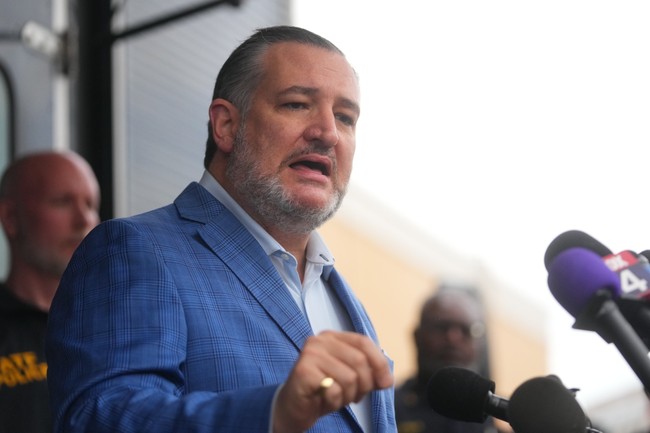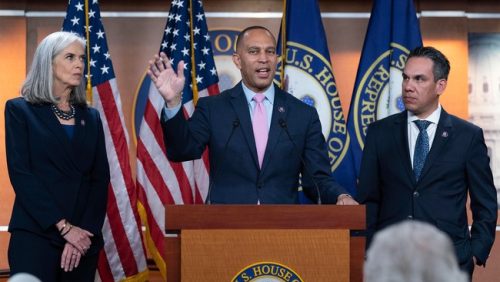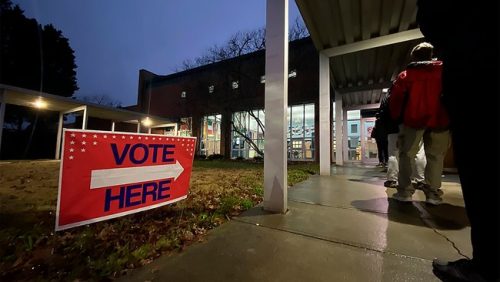Chad Wolf, former acting Homeland Security Secretary and America First Policy Institute executive, publicly backed Senator Ted Cruz’s Stop FUNDERs Act during a Senate Judiciary subcommittee hearing on politically violent attacks, arguing the law would let the Department of Justice target the money behind modern riots. Cruz’s bill would add rioting as a RICO predicate so prosecutors can use tools like asset seizure against organizations and bankrollers, and several high-profile law enforcement figures have voiced support for the measure. The discussion tied recent street violence and protests to major funders, and witnesses described how decentralized political violence operates and evades accountability. The hearing made clear Republicans want stronger legal tools to go after both the actors on the ground and the financing that enables chaos.
Senator Ted Cruz has been pushing the Stop FUNDERs Act since July, saying it is meant to cut off the checks that bankroll violent, politically driven unrest in American cities. He pointed at well-known left-wing protests and alleged outside funding sources, stating plainly that the goal is to treat organized rioting like other corrupt enterprises under federal law. The bill would change federal RICO so that rioting becomes a RICO predicate offense, allowing prosecutors to deploy familiar mafia-era tools against modern threats. That framing appeals to conservatives who want law enforcement empowered to disrupt funding networks rather than just chase street-level offenders.
The Senate Subcommittee on the Constitution convened to call politically violent attacks “a threat to our constitutional order” and to hear testimony about how those campaigns are funded and coordinated. Witnesses laid out incidents from 2020 and recurring tactics used to target federal and local officials, arguing political rhetoric and outside financial support helped fuel waves of violence. The hearing pushed the point that without legal mechanisms to go after funders, law enforcement will always be a step behind.
I’m glad to hear that Mr. Duva, President Trump’s nominee to lead the Justice Department's criminal division, is excited to support my Stop FUNDERs Act.
It’s time to pass my bill and give the DOJ and the FBI the tools they need to prosecute the financiers of political violence. pic.twitter.com/dOZc3oO1Fn
— Senator Ted Cruz (@SenTedCruz) October 22, 2025
Former acting DHS Secretary Chad Wolf told senators the Stop FUNDERs Act would help the Justice Department follow the money and hold accountable those who bankroll violence rather than just punish foot soldiers. Wolf joined a list of supporters that includes FBI Director Kash Patel and Andrew Duva, President Trump’s nominee for the DOJ criminal division, in endorsing the legislation and its intent to cut off the financial arteries sustaining unrest. He emphasized the need for additional enforcement tools so investigators can trace, freeze, and seize assets linked to organized campaigns of political violence.
Cruz said bluntly, “These same checkbooks are funding the chaos in Minneapolis, in Portland, in Los Angeles. It’s why I’ve introduced the Stop FUNDERs Act,” and went on to explain, “The Stop FUNDERs Act adds rioting as a predicate offense to RICO to enable the Department of Justice to use the full tools that have been directed at the mafia to go after the corrupt enterprise.” That language casts funders as part of a corrupt enterprise that deserves the full weight of federal law. For conservatives, the analogy to historic RICO prosecutions makes the proposal straightforward: treat political violence like organized crime and hit it where it hurts most, the bank accounts.
Wolf echoed that priority in his own words: “Yeah. Absolutely, it would. And happy to say America First Policy Institute has endorsed that piece of legislation as well,” Wolf replied. “Because you have to understand where they’re getting their finances, where they’re getting their backing. And if you can’t use the resources that the Department of Justice should be using, it’s going to make it very difficult. In 2020, we simply ran out of time before we left office in ’21. It is my understanding that the Department of Justice and the FBI are looking into this financing, so giving them additional quivers in their bad would be very good.” His testimony stressed practical enforcement gaps and the need for statutory tools to close them.
Wolf also recounted the scale of violence in places like Portland to explain why tougher measures are on the table, saying, “On September 4, 2020, violent opportunists and anarchists had done the unthinkable –reaching 100 consecutive nights of violent protests in Portland, Oregon. These protests were defined by repeated violent attacks on federal law enforcement, civilians, journalists, and federal property.” He noted repeated refusals by local officials to support federal officers and described the toll on law enforcement and downtown businesses. For Republicans, that episode remains a key example of local leadership choices worsening public safety and requiring stronger federal responses.
On the question of groups like Antifa, Wolf pushed back against the argument that decentralization shields organizers from legal action. He testified, “Those who oppose cracking down on violent anarchists often argue that President Trump was wrong to designate them as domestic terrorists because they lack formal structure, leadership, or governance,” Wolf said. “This criticism completely misses the point. Their lack of formal structure is a feature –not a bug. They operate this way precisely to evade law enforcement and accountability, and they are proving to be effective with this strategy. This decentralized model is not novel — it mirrors tactics used by other modern extremist or criminal networks.” That line of reasoning underpins the push to broaden prosecutorial reach.
Wolf continued, “Much like ISIS-inspired attacks in America, these activists do largely share a cohesive ideology that expressly advocates violence to achieve political or social ends. That squarely fits the federal statutory definition of domestic terrorism,” Wolf added. Framing violent left-wing activists within existing domestic terrorism definitions strengthens the legal argument for RICO-style tools and for treating financial backers as part of the criminal enterprise. Republicans at the hearing used that framing to argue for a firmer federal hand in both disruption and prosecution.
On the legislative front, a companion bill to the Stop FUNDERs Act was introduced in the House by Texas Rep. Beth Van Dyne, signaling a coordinated push across chambers to give prosecutors new options. The parallel House measure aims to mirror the Senate approach so that, if enacted, both prosecutors and investigators would have a consistent framework to target financing networks nationwide. Supporters say this synchronized strategy increases the odds of real enforcement changes instead of isolated prosecutions. For conservatives, the combined legislative effort reflects a clear priority: stop funders, protect communities, and restore order through the rule of law.






